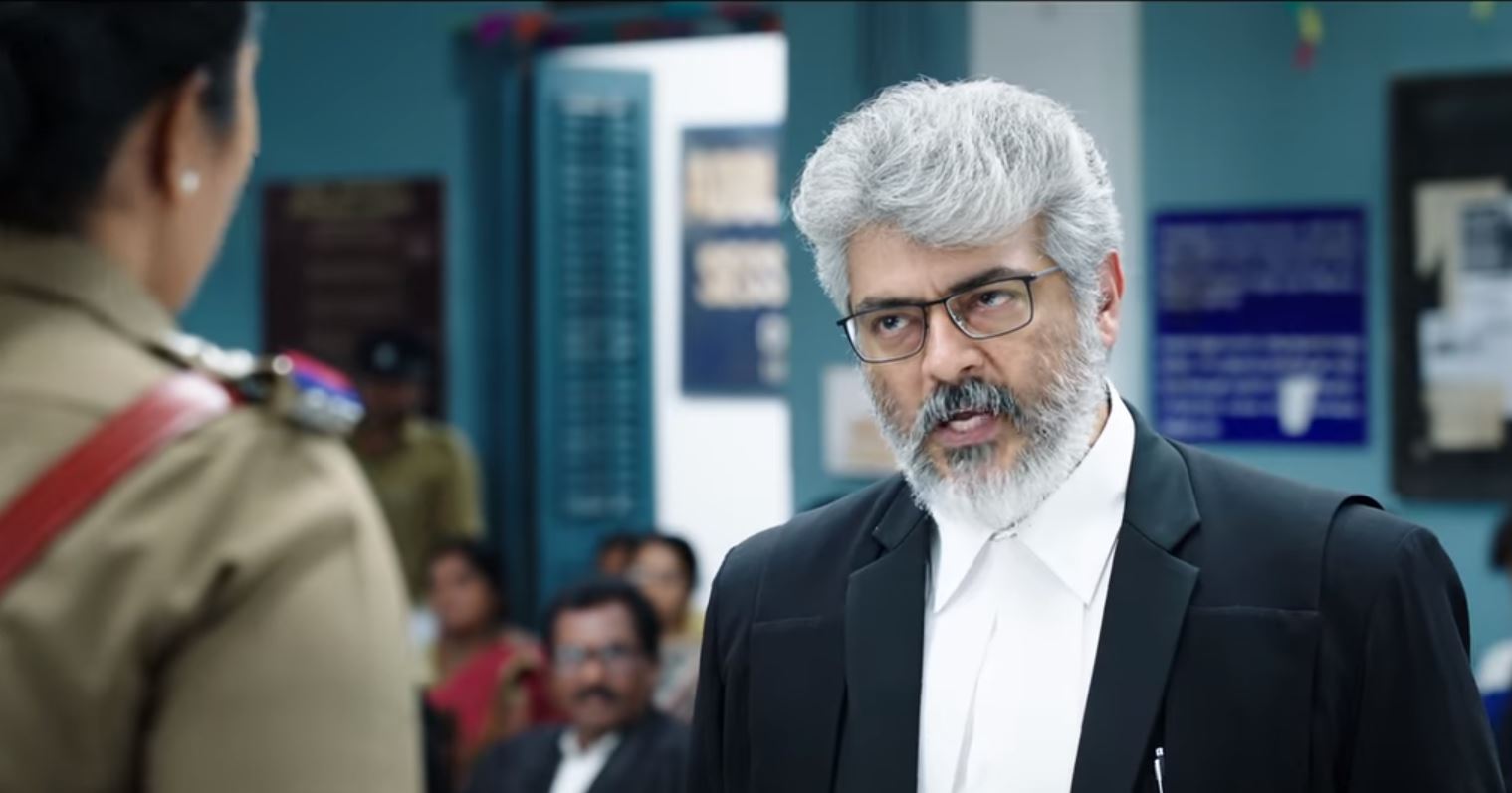
'Nerkonda Paarvai' faces flak for wrong portrayal of bipolar disorder

Ajith-starrer Nerkonda Paarvai (direct gaze) might have opened to rave reviews for the storyline and performances. However, mental health experts and activists are up in arms over the portrayal of bipolar disorder in the film, saying it perpetuates stigma related to mental illness through such misrepresentations.
A petition filed on Change.org by Mind Matters Circle has observed that the movie is callous and insensitive in its portrayal of the condition in the film, helmed by H Vinoth. The petition has called for the removal of the scenes that stigmatise the disorder, saying, “It reinforces the stereotype that people with psycho-social disabilities are extremely violent. This is nothing short of an insensitive, if not aggressive, assault on mental health service users, creating more hurdles in their crusade against stigma and discrimination.”
Wrong representation
The movie, a remake of the Amitabh Bachchan-starrer Pink in Hindi, shows that bipolar disorder was caused due to his wife’s sudden demise, the petition said, pointing out that this is clinically wrong as one cannot develop bipolar disorder in that manner.
“Scenes where the protagonist empties the tablets out of a bottle and takes them are extremely dangerous because such acts can influence the general public. Not only for mental health medications, but for any chronic illness, one cannot and should not take tablets beyond the prescribed dosage level as it can lead to grievous consequences,” it said.
Calling the portrayal of a psychiatrist in the film outrageous, the petition notes that his advice to the protagonist made him look dangerous and the mention of the disorder was used only to justify the 20-minute gory fight scene.
Saravana Raja, founder, Mind Matters Circle, said that given the fan following of an actor like Ajith, such exaggerations can be misconstrued as reality.
He said the efforts of the filmmakers has been “marred by the wrong portrayal of mental illness” and demanded removal of the scenes.
“Ajith has a large fan following and he is known for his integrity. Whatever his films say has a huge impression on the minds of his fans and film viewers,” Raja said.
Understanding bipolar disorder
Dr S Mohan Raj, consultant psychiatrist, says that while those with bipolar disorder alternate between depression-causing extreme sadness and mania, characterised by happiness or exuberance, they are seldom irritable.
“When filmmakers make such movies they should base them on the average patient, not on a rare case,” he says.
He adds that mental illness alone doesn’t make a person violent. “There was an abnormal portrayal of the condition in Dhanush-starrer Three. While the explanation of the condition by the doctor is reasonable, the presentation of the character suffering from it, is not. He is shown violent and alcoholic. Violence is often a result of drug or alcohol addiction and not an isolated symptom of an mental ailment,” he said.
Jokes, phrases and situations made into humour sequences or serious narratives based on mental illness have always been part of India cinema, However, their impact has been long ignored.
Dr Mohan Raj talks about how after watching the Malayalam movie Manichitirathazhu and its remakes like Chandramukhi, he was asked by people if psychiatrists liaison with exorcists or tantrics to cure illness. He says, “Such is the impact of films on the minds of people.”
Dr Thara Srinivasan of SCARF (Schizophrenia Research Foundation), pointed out that recently, the title of Hindi film which was originally called Mental Hai Kya was changed to Judgmental Hai Kya after the Indian Psychiatric Society and Indian Medical Association protested against the original title.
“Still the ‘judge’ in the title was smaller in font size,” Dr Thara said, adding that while there are media guidelines for reporting suicides, there are no such guidelines for filmmaking. “We have been conducting film festivals to highlight wrong and right portrayal. The sad part is that many from the film industry have had their own experiences with mental illness. Yet they continue to be insensitive to it,” she said.
Vaishnavi Jayakumar, co-founder, The Banyan, an NGO caring for the mentally ill, said that if films must actually specify a disorder, then it should be accurate.
“Also if it is going to be buying into a stereotype like violence, then a bold disclaimer message should be part of the opening credits. Freedom of expression is one thing, but misinformation is irresponsible in a country where mental illness is still stigmatised in addition to being low priority,” she said.
The problem is in the depiction in the segregation of the mental illness, observes Vandana Gopikumar and co-founder The Banyan. “Cinema especially in Indian context is not beyond stereotypes that promote prejudices,” she said.


